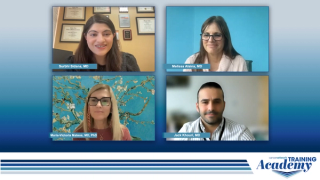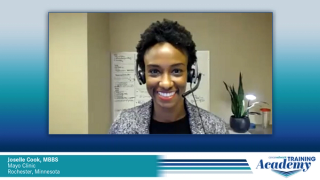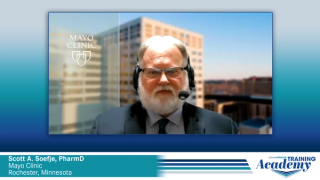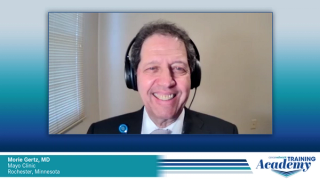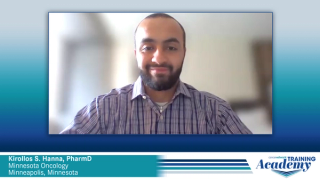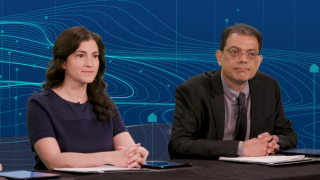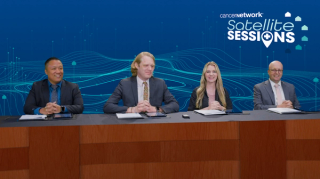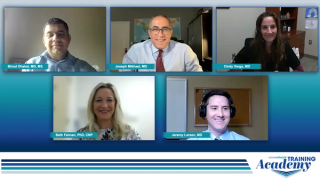
Multiple Myeloma
Latest News

Latest Videos

CME Content
More News
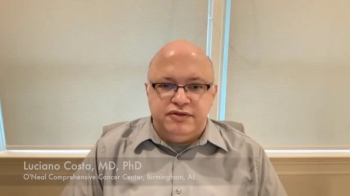
CancerNetwork® sat down with Luciano Costa, MD, PhD, at the 2021 International Myeloma Workshop to discuss the benefit of treatment with daratumumab, carfilzomib, lenalidomide, and dexamethasone and the population of patients with newly diagnosed myeloma who will best benefit from treatment.

Patients with high-risk smoldering myeloma who were treated with carfilzomib, lenalidomide, and dexamethasone and lenalidomide maintenance experienced an improvement in minimal residual disease–negative complete response and could have delayed end-organ disease.
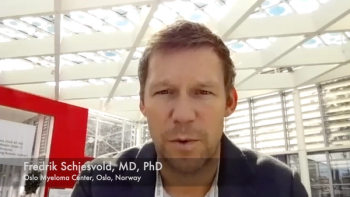
CancerNetwork® sat down with Fredrik Schjesvold, MD, PhD, at the 2021 International Myeloma Workshop to talk about minimal residual disease and its importance in the treatment of multiple myeloma.
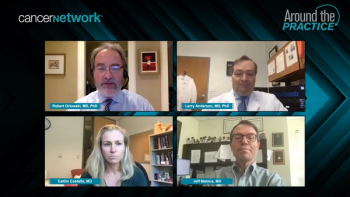
A panel of hematologists/oncologists conclude a discussion about transplant-ineligible multiple myeloma (MM) by reacting to current treatment gaps that need to be addressed.
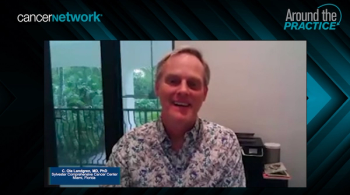
Experts review the case of a 75-year-old woman with newly diagnosed multiple myeloma and discuss treatment selection, continuation, reduction, and duration.
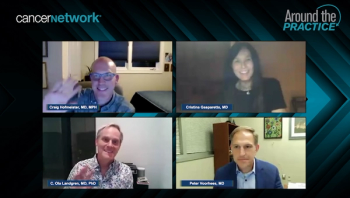
In-depth considerations for available frontline therapy regimens for patients with transplant-ineligible multiple myeloma.
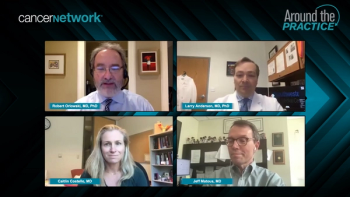
Recommendations when talking with patients with transplant-ineligible multiple myeloma (MM) who request to stop receiving treatment.

The phase 1b/2 CARTIRUDE-1 study found deep and durable responses, along with a tolerable safety profile with the recommended phase 2 dose of ciltacabtagene autoleucel for patients with relapsed or refractory multiple myeloma.

CancerNetwork® sat down with Luciano Costa, MD, PhD, at the 2021 International Myeloma Workshop to discuss key implications from the phase 2 MASTER trial, utilizing daratumumab, carfilzomib, lenalidomide, and dexamethasone.

Triggers that may lead a hematologist/oncologist to consider reinstituting therapy for a patient with transplant-ineligible multiple myeloma (MM) who received prior therapy but was not treated to progression.
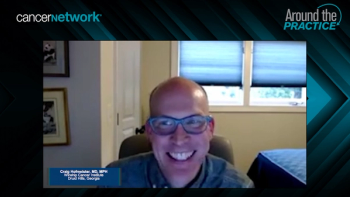
A panel of experts reflects on appropriate actions to take after a patient achieves adequate response to therapy for transplant-ineligible multiple myeloma.
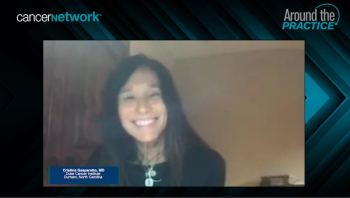
Shared insight on how best to assess a patient’s response to therapy for transplant-ineligible multiple myeloma.
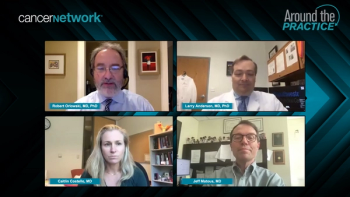
The rationale behind treating patients with newly diagnosed transplant-ineligible multiple myeloma (MM) until disease progression rather than stopping therapy at a designated point in time.
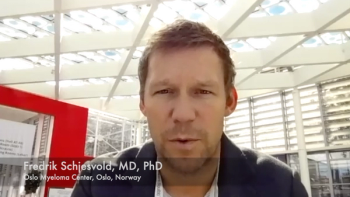
CancerNetwork® sat down with Fredrik Schjesvold, MD, PhD, at the 2021 International Myeloma Workshop to talk about how he would like to see the OCEAN trial and Melflufen progress for relapsed/refractory multiple myeloma.

CancerNetwork® sat down with Luciano Costa, MD, PhD, at the 2021 International Myeloma Workshop to talk about the most common adverse effects experienced from the quadruplet drug treatment for patients with multiple myeloma.

CancerNetwork® sat down with Fredrik Schjesvold, MD, PhD, at the 2021 International Myeloma Workshop to discuss the differences in safety profiles between melflufen/dexamethasone and pomalidomide/dexamethasone in relapsed/refractory multiple myeloma.

Take-home points from the MAIA trial of daratumumab plus lenalidomide and dexamethasone as therapy for patients with newly diagnosed transplant-ineligible multiple myeloma, and recommendations regarding maintenance therapy following the use of a triplet regimen.

CancerNetwork® sat down with Fredrik Schjesvold, MD, PhD, at the 2021 International Myeloma Workshop to talk about importance of subgroups when administering melflufen and dexamethasone to patients with relapsed/refractory multiple myeloma.

CancerNetwork® sat down with Luciano Costa, MD, PhD, at the 2021 International Myeloma Workshop to talk about the most important data from the phase 2 MASTER trial in newly diagnosed multiple myeloma.

Panelists elucidate how to determine transplant ineligibility and the goals of therapy while managing a patient with multiple myeloma.

Shared insight on the difficulties of transplant-ineligible newly diagnosed multiple myeloma and how to optimally approach treatment.

Scenarios for which a doublet regimen may be recommended over a triplet therapy for the management of newly diagnosed transplant-ineligible multiple myeloma.

CancerNetwork® sat down with Luciano Costa, MD, PhD, at the 2021 International Myeloma Workshop to talk about the decision to start the phase 2 MASTER trial for multiple myeloma.

A panel of hematologist-oncologists comment on how they would treat a 74-year-old patient with newly diagnosed transplant-ineligible multiple myeloma.

CancerNetwork® sat down with Fredrik Schjesvold, MD, PhD, at the 2021 International Myeloma Workshop to discuss key data that read out from the OCEAN trial for relapsed/refractory multiple myeloma.





